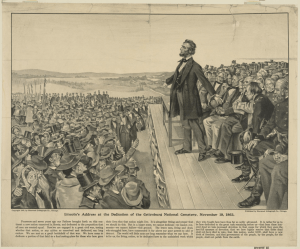We support our Publishers and Content Creators. You can view this story on their website by CLICKING HERE.
Although there may be a hundred and one things that can be done in a Jubilee Year, there is one thing above all others, without which everything else is pointless. First and foremost, it is a time to turn back and embrace anew the only form of love that can unite us with God. In order to understand the precise nature of this love let me turn to the Bible.
In the Bible there are two types of agreements; one is a mutual agreement that only stands if both parties stand by the promises made. The other is the agreement that God made with Abraham. It is a unilateral agreement signified by the word Berith. In other words when God said he would love the new people who would be generated from his seed, he committed himself to love them whether or not they responded to his love.
The great Prophet who proclaimed God’s unconditional love more than any other, was Hosea. He proclaimed God’s unconditional love, not just by his words, but by his own example, for he never stopped loving his wife Gomer. She had so many affairs, that he had to admit he did not even know which of their children were his. When Christ came to extend God’s original agreement or Covenant to the whole of Humanity, he too embodied the inner nature of God’s unconditional love in his own personal life. He loved every one with the same selfless unconditional and unwavering love of the Father who sent him, even though people not only hated him, but hated him to death. The blood that he shed on the cross became the ‘blood of the new covenant,’ or the new agreement that he would go on loving his people to the end of time, no matter whether or not they returned his love.
This new covenant is reaffirmed every time Mass is celebrated. It reminds us that God will never stop loving us through Jesus Christ his only begotten son, who promised to remain with us to the end of time. Only the spiritually dead or dying can remain unmoved by this continual, selfless, unconditional and unwavering love that we see and hear endlessly re-affirmed each time we go to Mass. It is here that we do not just hear the words spoken again by Christ through the priest, that ratifies this unconditional love, but much more. For when we receive him into us, body, blood, soul and divinity, we receive the unconditional Lover himself.
He comes so that, those who receive him, as they should, will be taken up into his mystical loving. Here our love can mix, mingle, merge and marry with his love, so that we are empowered to respond to his selfless unconditional and unwavering loving, as he would wish. Now his abiding presence enables him to continue his redemptive work in the world through us. In this way his new covenant, his new promise of unconditional love, can be open to all who are prepared to generate the self-same unconditional love that can alone unite us with him, and through him with God the Father of us all. Like the daily life of Christ himself, it involves making very many sacrifices by trying to do God’s will. And God’s will is that those who want to be united with him should first learn to love him with their whole mind and heart, their whole body and soul, and with their whole strength. And the place where this begins is in prayer, beginning with consecrating the day to God as Our Lady taught Christ to do, when she taught her son to say the Shema, that later came to be called the Morning Offering.
Let me make clear the inner nature of the simple, selfless, unalloyed and unconditional prayer that is being asked of us throughout a lifetime of interior prayer. In order to do so let me introduce you to St Angela of Foligno.
St Angela of Foligno was born in 1248, 22 years after St Francis of Assisi died, She herself died in 1309. Like St Francis, she came from a prosperous family and was married to a wealthy merchant with whom she had several children. Until about forty years she lived a carefree and easy life in comparative luxury and was in her own words a ‘humbug’. However, after her husband and children died she had a profound experience of the transcendent glory of God in the Church of San Francesco in Assisi that led to her conversion. It was St Angela who first called prayer the Schola Divini Amoris. In plain English this means the ‘School of Divine Loving’. But lest you fail to understand precisely what this means, as I did for years to the great disadvantage of my spiritual journey, let me spell out what it means as clearly as possible.
It means that prayer is the place where we go to learn how to love God in the same way that he loves us. It is how he has always loved us and will continue to love us to the end of time, and thereafter to all eternity, despite receiving from us, for the most part, nothing in return.
In other words, Divine loving means the loving by which God loves us, with the total unconditional loving in which he receives little if anything from the vast majority of us in return. This is the loving that we are invited to practice that can ultimately unite us to God’s loving, because it is similar in nature to the love with which God loves us. Unless therefore we can come to learn this form of loving we can never be united firstly with Christ and then, in, with, and through him with God.
So when we start to learn how to pray in the Schola Divini Amoris, do not be surprised, rather be grateful that prayer seems difficult, precisely because we are being asked to give without receiving in return, amidst countless distractions and temptations. Far from feeling like heaven on earth, prayer can feel more like a living hell, and everything within you revolts at the prospect of daily giving time to prayer of any sort. This is now the place where we learn the only form of loving that can unite us to God, precisely because it is only our simple selfless, unalloyed, unconditional loving, that can unite us with God’s simple, selfless, unalloyed, unconditional loving, and so with himself.
It is possible because thanks to our baptism we have been taken up into the mystical body of Christ, in, with, and through whom we learn a profound form of loving which sufficiently unites us, in, with, and through him with God. This is the prayer that eventually leads us not just into Christ’s mystical body, but into his loving contemplation of the Father. It is here that we receive in return what St Thomas Aquinas calls the fruits of contemplation that can alone perfectly re-make and reform us into the image and likeness of Christ. Although St Angela was born almost eight hundred years ago, and only beatified just over three hundred years ago, she was only canonised ten years ago. Almost the last thing Pope Benedict did before resigning was to make provision for the canonization of Angela of Foligno. Why, because only the sort of loving learnt in what she calls the Schola Divini Amoris can save the Church from the disaster that seems set to destroy her.
I say, ‘seems set’, because it will not succeed, because before disaster sets in, sufficient Catholics who belong to the Remnant will repent and turn back to God to save, not just the Church, but the world from extinction. It is in this prayer par excellence that through practicing the same love that Christ practiced, we are united with him and with his love of the Father. With this love once again being practiced as it was in the Early Church, all things become possible—even the impossible.
That is why in order to learn this form of prayer may I invite you to make a resolution to do a retreat in this Jubilee Year, in which the essential teaching is to learn how to return to this form of ‘Divine loving’. If it is not being held at your own Parish Church, which would be the ideal, then do it yourself alone or with your family in your own home. All you need to do is to click here and you will receive all the information you need. The Patron of what is called a Metanoia Retreat—‘Back to Prayer, Forward with Christ the King—is his Excellency Bishop Athanasius Schneider and it is dedicated to Our Lady of Mount Carmel. What better way in which to begin celebrating this Jubilee Year than by making a retreat that teaches us how to Love God in the same way that he loves us.
The Imaginative Conservative applies the principle of appreciation to the discussion of culture and politics—we approach dialogue with magnanimity rather than with mere civility. Will you help us remain a refreshing oasis in the increasingly contentious arena of modern discourse? Please consider donating now.
The featured image is courtesy of Pixabay.

 Conservative
Conservative  Search
Search Trending
Trending Current News
Current News 






